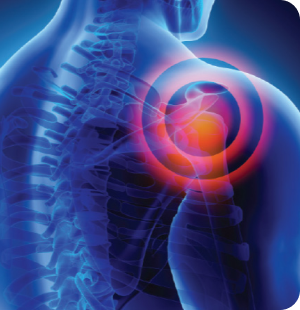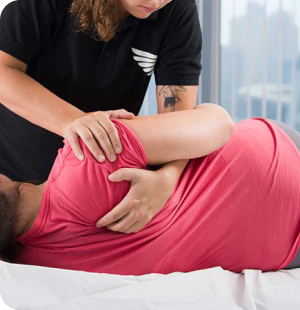Shoulder Problems
Shoulder problems encompass various conditions like rotator cuff tears, frozen shoulder, and shoulder impingement syndrome, each presenting unique challenges such as pain, stiffness, and limited range of motion. These issues can significantly impact your ability to perform daily tasks or engage in sports and recreational activities comfortably. Treatment options range from non-surgical approaches such as physical therapy and medications to surgical interventions like arthroscopic procedures or shoulder replacement, depending on the severity and type of condition. As your orthopedic specialist, I offer comprehensive evaluations and personalized treatment plans to address your specific shoulder concerns, aiming to restore function and alleviate pain effectively.

Frequently Asked Questions

Shoulder pain and stiffness can result from various conditions, including periarthritis (frozen shoulder), shoulder impingement syndrome, rotator cuff tears, and labral tears. These conditions often develop due to overuse, repetitive motions, sports injuries, or age-related degeneration of the shoulder joint.

Shoulder surgery may be necessary when conservative treatments such as medications, physical therapy, and injections fail to provide adequate relief. Common indications for shoulder surgery include severe rotator cuff tears, persistent shoulder instability, labral tears that impair joint function, and advanced arthritis affecting the shoulder joint.

Shoulder surgery aims to alleviate pain, restore joint function, and improve overall shoulder stability and mobility. Depending on the specific condition, benefits may include reduced pain during daily activities, enhanced range of motion, improved strength, and the ability to return to sports and other physical activities.

The cost of shoulder surgery varies based on factors such as the type of procedure performed, the specific hospital or clinic, surgeon’s fees, and any additional treatments required. On average, shoulder surgery costs range from IN . 1,50,000 to INR 3,00,000. This typically covers pre-operative assessments, the surgical procedure, post-operative care, and rehabilitation.

Rotator cuff tears are diagnosed through a combination of physical examination and imaging studies. During the physical exam, Dr. Jeyaraj Pradeep assesses shoulder strength, range of motion, and signs of impingement. Imaging techniques such as MRI (Magnetic Resonance Imaging) provide detailed images of the shoulder joint, confirming the presence and extent of rotator cuff tears.

Treatment for frozen shoulder may include non-surgical approaches such as physical therapy, anti-inflammatory medications, corticosteroid injections, and gentle stretching exercises to improve shoulder mobility. In cases where conservative treatments fail to provide relief, arthroscopic surgery may be recommended to release tight tissues and restore shoulder movement.

Recovery following shoulder surgery varies depending on the type of procedure performed and the patient’s overall health. Generally, patients can expect to gradually regain shoulder strength and range of motion over several weeks to months. Physical therapy is crucial for optimizing recovery outcomes and helping patients return to their normal activities as soon as possible.

Shoulder surgery can significantly improve sports performance by addressing underlying joint issues, reducing pain, and restoring optimal shoulder function. Athletes who undergo successful shoulder surgery often experience enhanced shoulder stability, increased strength, and improved range of motion, allowing them to perform at their best in sports activities.


.png)
.png)
